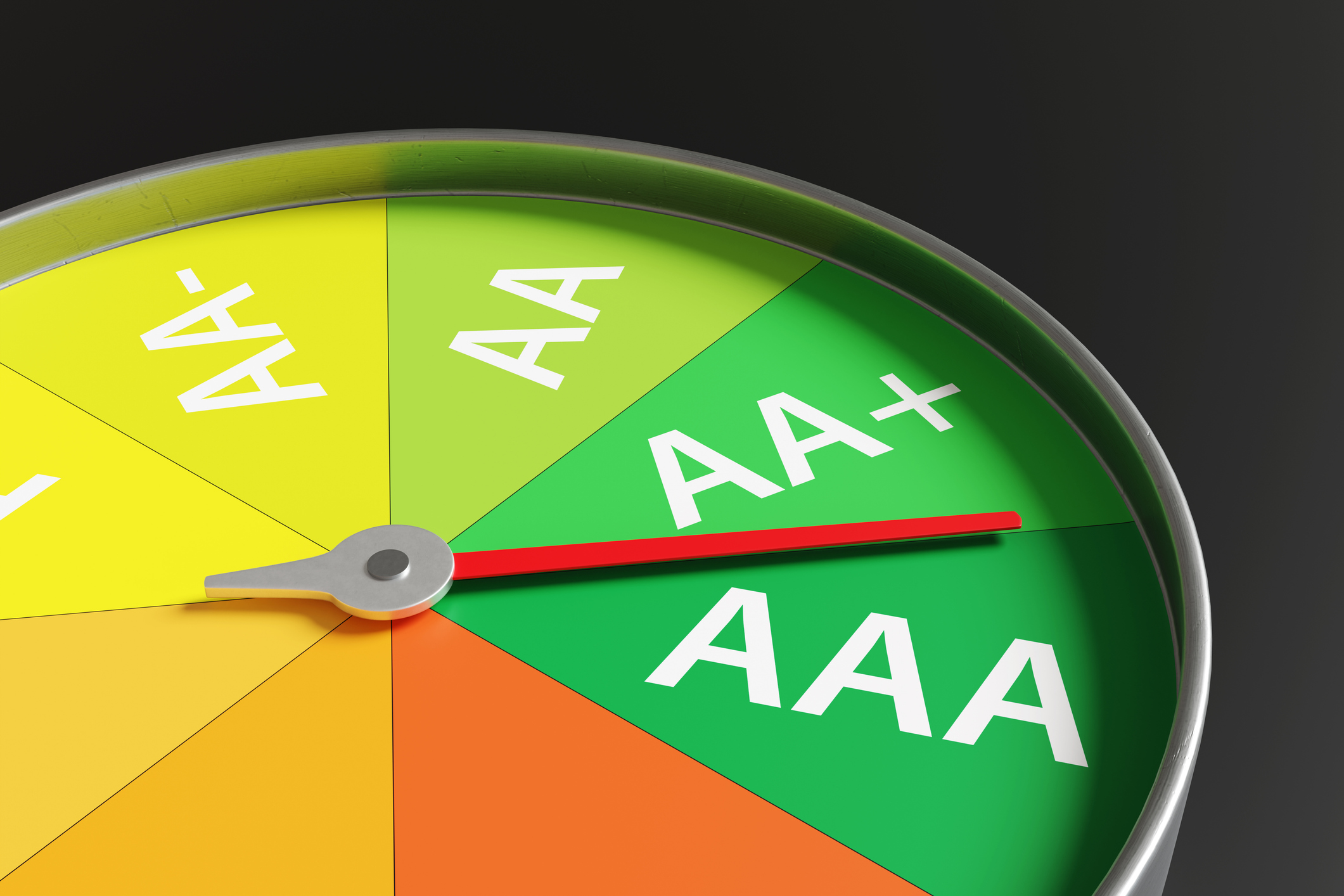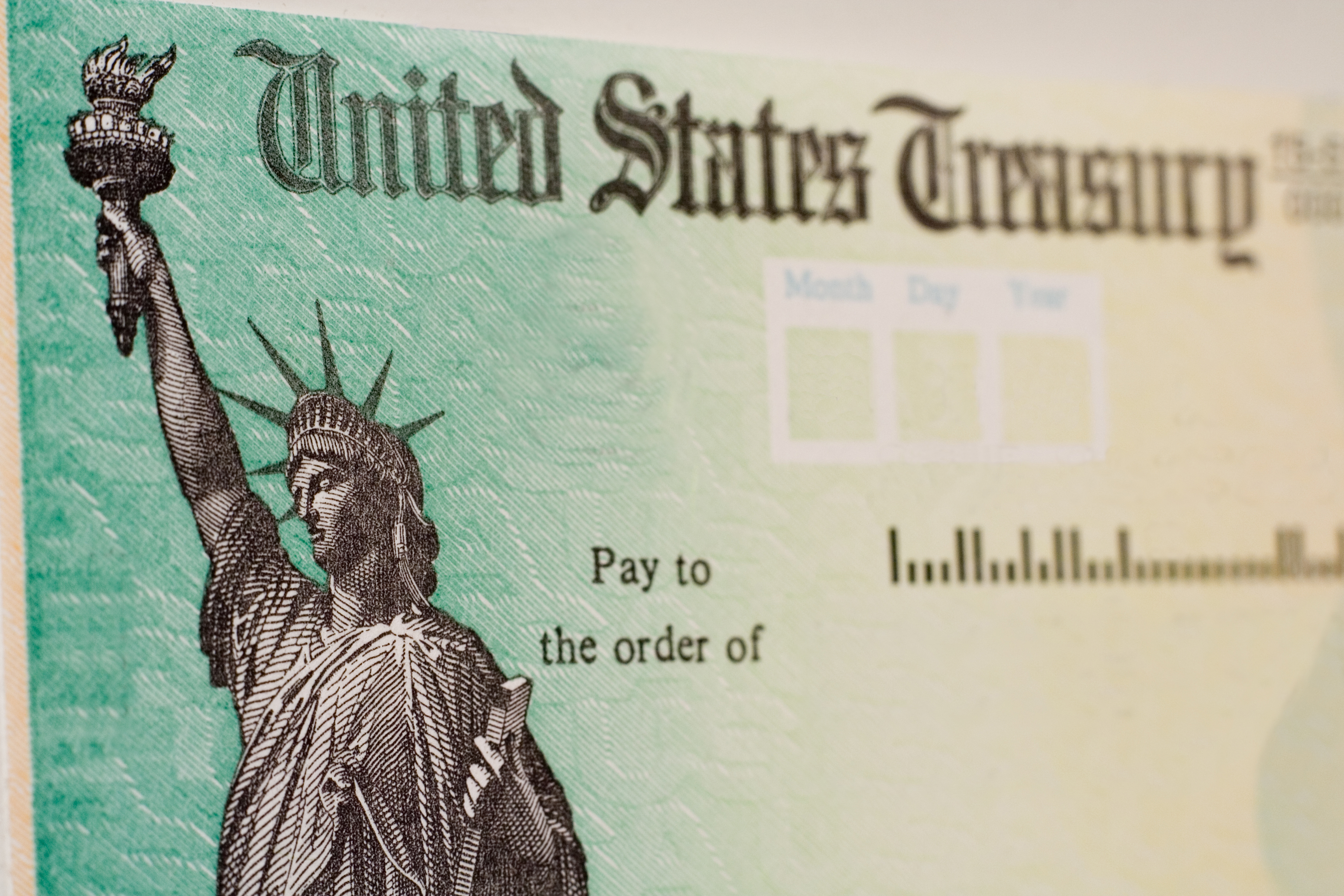Your Investing Guide to the Debt Ceiling Crisis
Here's what you should know to protect your portfolio, no matter how the politicians handle the U.S. debt debate.

Profit and prosper with the best of Kiplinger's advice on investing, taxes, retirement, personal finance and much more. Delivered daily. Enter your email in the box and click Sign Me Up.
You are now subscribed
Your newsletter sign-up was successful
Want to add more newsletters?

Delivered daily
Kiplinger Today
Profit and prosper with the best of Kiplinger's advice on investing, taxes, retirement, personal finance and much more delivered daily. Smart money moves start here.

Sent five days a week
Kiplinger A Step Ahead
Get practical help to make better financial decisions in your everyday life, from spending to savings on top deals.

Delivered daily
Kiplinger Closing Bell
Get today's biggest financial and investing headlines delivered to your inbox every day the U.S. stock market is open.

Sent twice a week
Kiplinger Adviser Intel
Financial pros across the country share best practices and fresh tactics to preserve and grow your wealth.

Delivered weekly
Kiplinger Tax Tips
Trim your federal and state tax bills with practical tax-planning and tax-cutting strategies.

Sent twice a week
Kiplinger Retirement Tips
Your twice-a-week guide to planning and enjoying a financially secure and richly rewarding retirement

Sent bimonthly.
Kiplinger Adviser Angle
Insights for advisers, wealth managers and other financial professionals.

Sent twice a week
Kiplinger Investing Weekly
Your twice-a-week roundup of promising stocks, funds, companies and industries you should consider, ones you should avoid, and why.

Sent weekly for six weeks
Kiplinger Invest for Retirement
Your step-by-step six-part series on how to invest for retirement, from devising a successful strategy to exactly which investments to choose.
Some members of Congress seem weirdly untroubled by the anxiety the debt-ceiling crisis is causing all over the planet. It gets harder every day for those of us who save and invest to watch the threat to the U.S. government's credit standing and the economy and to not get fidgety. The product of all the arguing, invective and political posturing could still end up short of a disaster. In all honesty, though, the standoff has already damaged America's financial reputation. So here are my thoughts on what’s noise that you should filter out and what you have good cause to worry about.
First, don’t fret about a nuclear scenario. There is no evidence that the U.S. Treasury will deprive holders of government bonds of the interest and principal they’re due. In other words, they won’t suffer the fates of creditors of Enron or the Confederate States of America. The phrase “full faith and credit” isn’t some slogan to sell Treasury bonds. It’s a guarantee.
A technical default, not an actual one, is the most likely scenario. In the event the debt limit is not increased soon enough, the Treasury would, in the most extreme case, delay making some interest payments as well as sending out some other checks. It would then catch up ASAP upon the resumption of borrowing authority. But even one day of limbo would terminate the Treasury’s stature as the world’s strongest financial institution. It would almost certainly lead to a reduction in the government’s triple-A bond rating. Treasury debt would no longer be considered ironclad and risk-free.
From just $107.88 $24.99 for Kiplinger Personal Finance
Become a smarter, better informed investor. Subscribe from just $107.88 $24.99, plus get up to 4 Special Issues

Sign up for Kiplinger’s Free Newsletters
Profit and prosper with the best of expert advice on investing, taxes, retirement, personal finance and more - straight to your e-mail.
Profit and prosper with the best of expert advice - straight to your e-mail.
But our triple-A rating is at risk even if the debt ceiling is raised before August 2, the date by which Treasury Secretary Timothy Geithner says the U.S. will run out of money. Wall Streeters and fund managers I’ve spoken with or listened to in the past week believe that even without a default, there’s a 50-50 chance that at least one of the three key ratings agencies (Standard & Poor’s, Moody’s Investors Service and Fitch) will cut the Treasury’s rating a notch, to high double-A, if Congress and President Obama don’t agree to a significant reduction in the nation’s spiraling budget deficit.
A downgrade would certainly harm the economy. Treasury bond yields would rise immediately, although by how much is a matter of conjecture (more on that in a bit). Mortgage rates would rise, too, because they are pegged to Treasury bond yields. That would put more hurt on housing and commercial real estate, already the causes of so much distress and unemployment. Lenders would further tighten credit because their holdings of government securities would lose value. A credit downgrade would weigh on the already creaking value of the dollar. The buck might not fall against the sick euro, but it would lose against oil, gold and other commodities priced in dollars.
And while the cost of borrowing would rise, savers probably would not see any improvement in yields on bank accounts and money market funds. That’s because the Federal Reserve Board, which controls short-term interest rates, is likely on hold for as long as the U.S. economy remains sluggish and inflation shows few signs of flaring up.
This brings us to stocks and bonds. Wall Street has been uncharacteristically calm even as the bickering intensifies in the capital. Investors seem to be focusing more on strong earnings reports from the likes of Apple, IBM and Ford than on the political stalemate. But the bulk of earnings-reporting season will be over by the third week of August, at which point investors can return to the dangers stemming from the impasse in Washington.
Most economists believe a ratings downgrade and higher interest rates won’t automatically lead to a new recession. But if gross domestic product grows 2% annually instead of the hoped-for 3% or better for the next couple of years, the stock market becomes vulnerable. In any case, stocks are surely ripe for a correction of 10% or so between August and October. That’s common even in the best of times and isn't a justification for unloading shares unless you decide that the amount you have in stocks is too great for your risk tolerance.
Bonds are more complicated. Yes, because bond prices move inversely with yields, a rise in Treasury yields by definition means a decline in Treasury bond prices. DB Advisors, the money-management arm of Deutsche Bank, predicts that bond yields would immediately jump 0.2 to 0.3 percentage point following a default. I think that’s a conservative forecast. I could easily see bond yields rising a full percentage point over several months. That would clip the value of, say, the ten-year Treasury by about 8%.
But analysts don’t expect panic selling of Treasuries. One reason is a lack of alternatives. At double-A plus, Treasuries would still be among the world’s highest-rated and most liquid fixed-income investments. Steve Johnson, chief investment officer at DB Advisors, says that, strangely enough, worried holders of long-term Treasuries would run to short-term Treasuries -- say, those maturing in six months up to two years. The buying would further drive down their yields, which are already minute.
Like stocks, municipal and corporate bonds have also remained mostly above the fray. The prognosis for these categories is favorable. Many advisers are enamored with munis, partly because their yields are high compared with Treasuries and partly because, notwithstanding scaremongering by the likes of analyst Meredith Whitney, most state and local issuers are in decent financial shape. So there’s no reason to unload high-quality munis or funds that invest in them. The main concern is that if Uncle Sam is downgraded, the ratings agencies may nick the ratings of states, such as Maryland and Virginia, that are closely tied to the military and government workers. But those states are among the strongest ones, and a drop from triple-A to double-A won’t matter if you’re angling for good after-tax income.
High-grade corporate bonds are also unlikely to suffer. For the most part, corporate America is in great financial shape, having fattened its balance sheets since the last recession ended in 2009. If anything, companies are being even more conservative with their cash as they get ready for chaos in the credit markets in the event of a government default. The few remaining triple-A-rated U.S. companies -- Automatic Data Processing, ExxonMobil, Johnson & Johnson and Microsoft -- will benefit from their scarcity. The same is true of double-A-rated corporate debt. Balance sheets are strong, and profits are high. If you want to switch some money from a fund that owns medium-term or long-term Treasury bonds to one that owns higher-quality corporates, go for it.
But get ready for more volatility in junk bonds and possibly in corporate debt rated triple-B (the lowest investment-grade rating). One reason is that many pension funds and other institutions are required by their bylaws or their clients to keep an overall portfolio average rating of at least double-A. If Treasuries are downgraded to that level, these investors will need to avoid or trim their holdings in lower-rated bonds to offset the government’s downgrade. Besides, junk is already expensive relative to Treasuries. Funds that invest in junk bonds could easily experience double-digit losses, particularly if the economy returns to recession.
Foreign bonds can offer good income and can serve as a hedge against a falling dollar. Only a few big nations are still rated triple-A -- Canada, Germany and Australia among them -- but smart bond fund managers skip debt from basket cases, such as Greece and Portugal, that might default involuntarily. Funds that own foreign bonds are enjoying solid returns in 2011; the average emerging-markets bond fund was up 6.1% year-to-date through July 26, and the average global bond fund was up 5.4%. Those kinds of funds may not continue to appreciate at the same rate, but expect them to deliver decent results regardless of what does or doesn’t happen in Washington in the days and weeks ahead.
Profit and prosper with the best of Kiplinger's advice on investing, taxes, retirement, personal finance and much more. Delivered daily. Enter your email in the box and click Sign Me Up.

Kosnett is the editor of Kiplinger Investing for Income and writes the "Cash in Hand" column for Kiplinger Personal Finance. He is an income-investing expert who covers bonds, real estate investment trusts, oil and gas income deals, dividend stocks and anything else that pays interest and dividends. He joined Kiplinger in 1981 after six years in newspapers, including the Baltimore Sun. He is a 1976 journalism graduate from the Medill School at Northwestern University and completed an executive program at the Carnegie-Mellon University business school in 1978.
-
 The New Reality for Entertainment
The New Reality for EntertainmentThe Kiplinger Letter The entertainment industry is shifting as movie and TV companies face fierce competition, fight for attention and cope with artificial intelligence.
-
 Stocks Sink With Alphabet, Bitcoin: Stock Market Today
Stocks Sink With Alphabet, Bitcoin: Stock Market TodayA dismal round of jobs data did little to lift sentiment on Thursday.
-
 Betting on Super Bowl 2026? New IRS Tax Changes Could Cost You
Betting on Super Bowl 2026? New IRS Tax Changes Could Cost YouTaxable Income When Super Bowl LX hype fades, some fans may be surprised to learn that sports betting tax rules have shifted.
-
 The Most Tax-Friendly States for Investing in 2025 (Hint: There Are Two)
The Most Tax-Friendly States for Investing in 2025 (Hint: There Are Two)State Taxes Living in one of these places could lower your 2025 investment taxes — especially if you invest in real estate.
-
 The Final Countdown for Retirees with Investment Income
The Final Countdown for Retirees with Investment IncomeRetirement Tax Don’t assume Social Security withholding is enough. Some retirement income may require a quarterly estimated tax payment by the September 15 deadline.
-
 Bond Basics: How to Reduce the Risks
Bond Basics: How to Reduce the Risksinvesting Bonds have risks you won't find in other types of investments. Find out how to spot risky bonds and how to avoid them.
-
 Why Investors Needn't Worry About U.S. Credit Downgrade
Why Investors Needn't Worry About U.S. Credit DowngradeFitch Ratings The United States saw its credit rating downgraded for just the second time in history, but experts aren't worried about the long-term damage to stocks.
-
 Bond Ratings and What They Mean
Bond Ratings and What They Meaninvesting Bond ratings measure the creditworthiness of your bond issuer. Understanding bond ratings can help you limit your risk and maximize your yield.
-
 Bond Basics: Treasuries
Bond Basics: Treasuriesinvesting Understand the different types of U.S. treasuries and how they work.
-
 Bond Basics: Ownership
Bond Basics: Ownershipinvesting Bonds come in a variety of forms, but they all share these basic traits.
-
 Bond Basics: Pick Your Type
Bond Basics: Pick Your Typeinvesting Bonds offer a variety of ways to grow wealth and fortify your portfolio. Learn about the types of bonds and how they work.